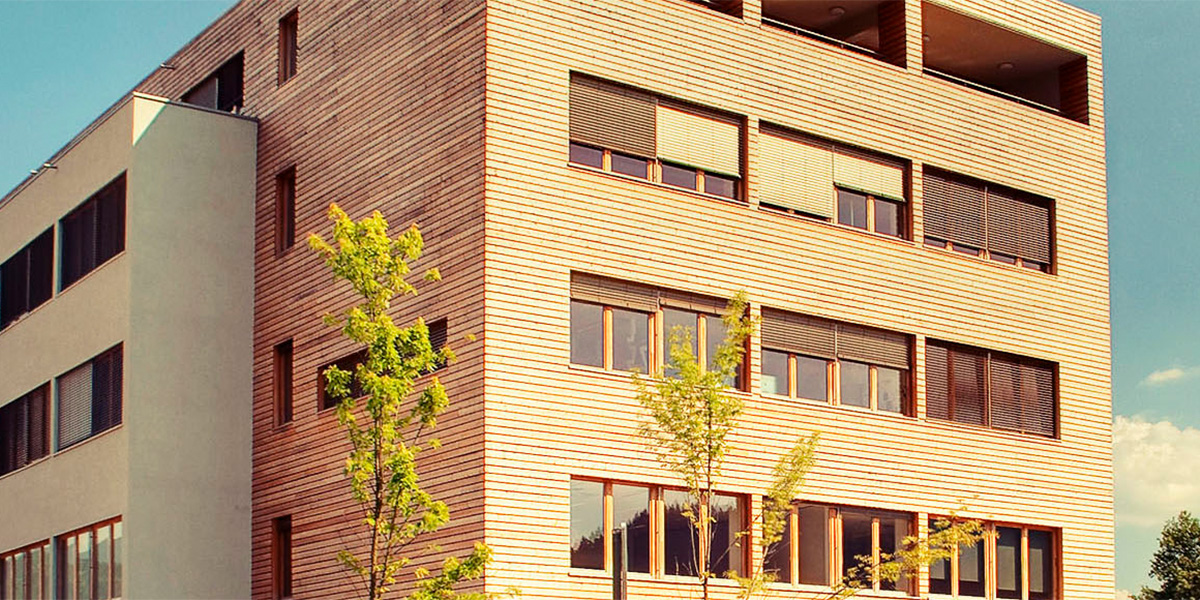Implementation of sustainable materials into our products is a responsible and challenging task. In one of the previous articles, we have described in-depth how we choose the materials for our products. While our research & development department boasts extensive knowledge that helps ensure optimal material selection, we still outsource certain services when we implement new materials in order to further improve final results.
Download our e-book about the sustainable materials we use in our manufacturing process >>
Many material characteristics can be assessed from the technical data sheets provided by the material manufacturers and with the help of past experiences of our engineers. However, often information on certain properties that are required for a specific product are not provided by the manufacturer and need to be evaluated.
Evaluating Material Properties in Implementation of Sustainable Materials
The knowledge of how the material will behave over its lifetime in a specific application is certainly one of the many properties that are of paramount importance and can’t be provided by the material manufacturer, since the behavior is highly dependent on many different factors, such as product design and conditions of use. To evaluate such unknown material properties, we collaborate with research institutions, such as the Faculty of Polymer Technology (FTPO) from Slovenj Gradec.
The Faculty of Polymer Technology possesses in-depth knowledge on polymeric materials and their characterization as well as state-of-the-art equipment for testing of polymers. There, material characterization is done using advanced instrumental analytical techniques, such as dynamic mechanical analysis, differential scanning calorimetry, thermogravimetric analysis, infrared spectroscopy, and different techniques for determining the mechanical behavior of the materials.

Using LCA to Improve the Process of Implementation of Sustainable Materials
When the material lifetime prediction is in question, the above-mentioned techniques are coupled with various accelerated weathering procedures, which allow us to quickly evaluate how the material will behave over its lifetime. These advanced material characterization techniques also come in handy if we face challenges in production, as they provide an in-depth insight into the material behavior during the production processes.
Life-cycle assessment (LCA) is a tool we use for the evaluation of different materials in the early design phase. With LCA, we evaluate how our design and material choices will influence the environmental impact of the product. Material choice has a large impact on the product's environmental footprint in different phases, all the way from the resource extraction, material production, transportation, production, product use and its end of life.
As LCA is a complex analysis that requires expert knowledge, we collaborate in this field with the Faculty for mechanical engineering of the University in Ljubljana, which employs world-class experts in this field.

Changes in the Production Processes due to Implementation of Sustainable Materials
Another important consideration in the implementation of sustainable materials is how it will influence the production process. In this regard, there are complex, interdependent relationships between the part design, material, mold design, machine, processing parameters and resulting quality characteristics.
When we are implementing a new material for a product, we have to think holistically about all those aspects. Numerical injection molding simulations are an indispensable tool in this context, as they allow us to predict how a certain material will behave during the production process of the part. Data obtained by injection simulations enables us to make informed design decisions that will ensure optimal part quality, productivity and final price. In this area, we are cooperating with Slovenian Tool and Die Development Center Tecos, which performs structural and process simulations and provides us with additional guidance on part and mold design.
Joining forces with these research institutions helps us achieve significantly better results when it comes to the implementation of sustainable materials into our production processes, thus enabling us to provide our clients with improved products at a more competitive price.
Find out more about how we incorporate sustainable materials into our production process. Fill in the form and download the e-book with educational content.


